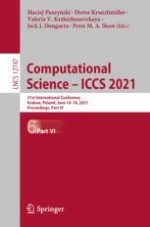2021 | OriginalPaper | Buchkapitel
Adiabatic Quantum Feature Selection for Sparse Linear Regression
verfasst von : Surya Sai Teja Desu, P. K. Srijith, M. V. Panduranga Rao, Naveen Sivadasan
Erschienen in: Computational Science – ICCS 2021
Aktivieren Sie unsere intelligente Suche, um passende Fachinhalte oder Patente zu finden.
Wählen Sie Textabschnitte aus um mit Künstlicher Intelligenz passenden Patente zu finden. powered by
Markieren Sie Textabschnitte, um KI-gestützt weitere passende Inhalte zu finden. powered by
